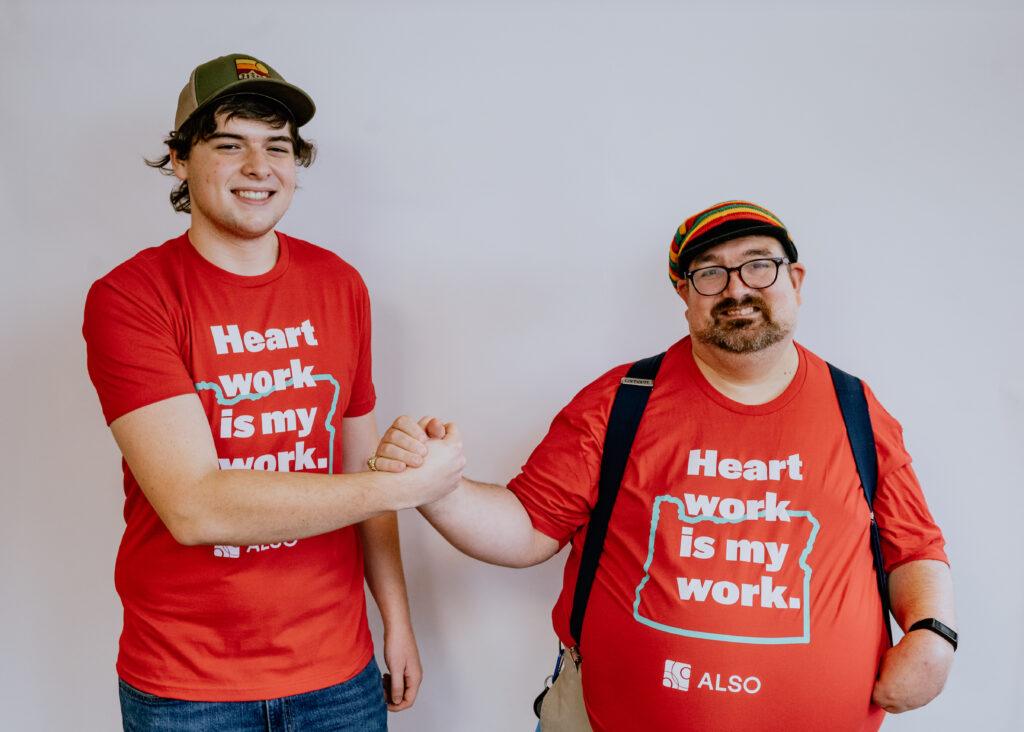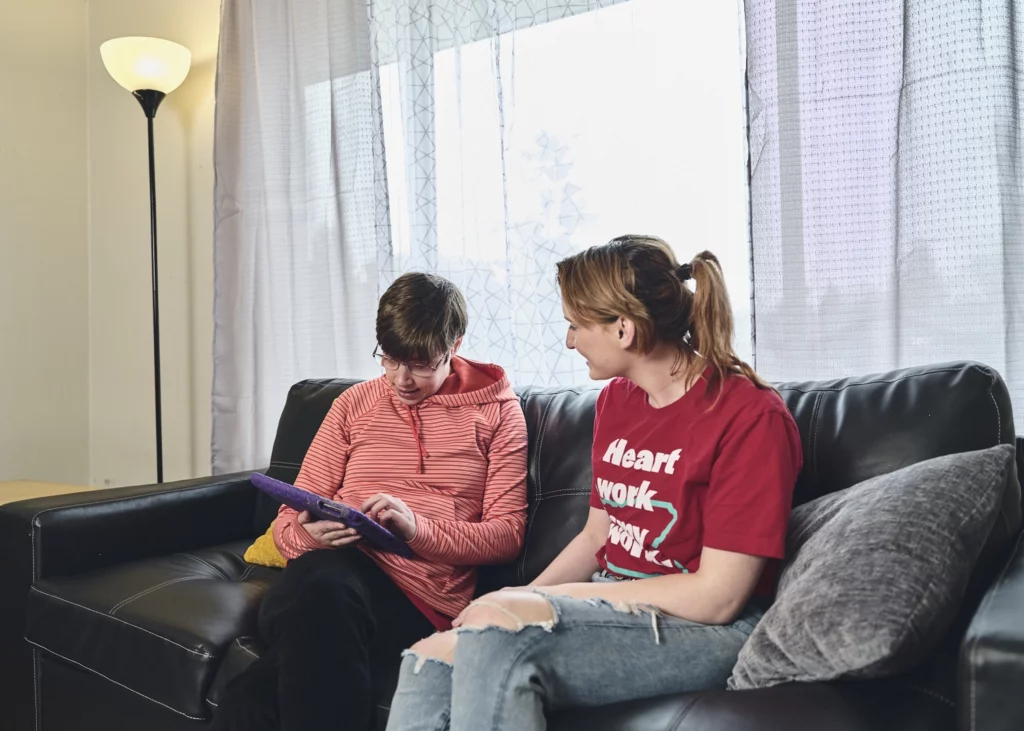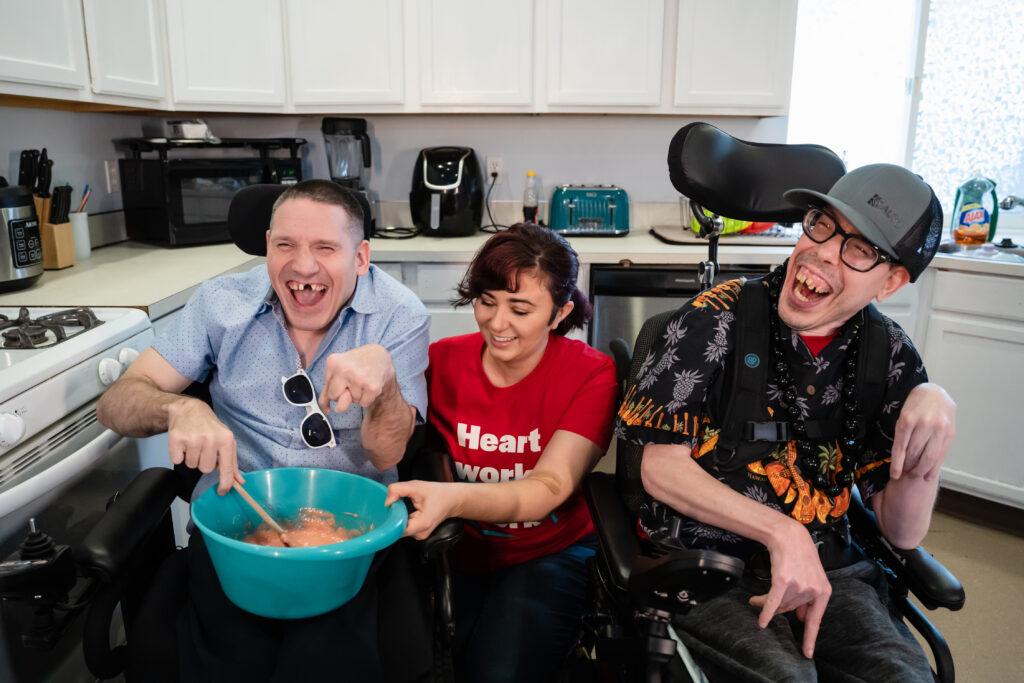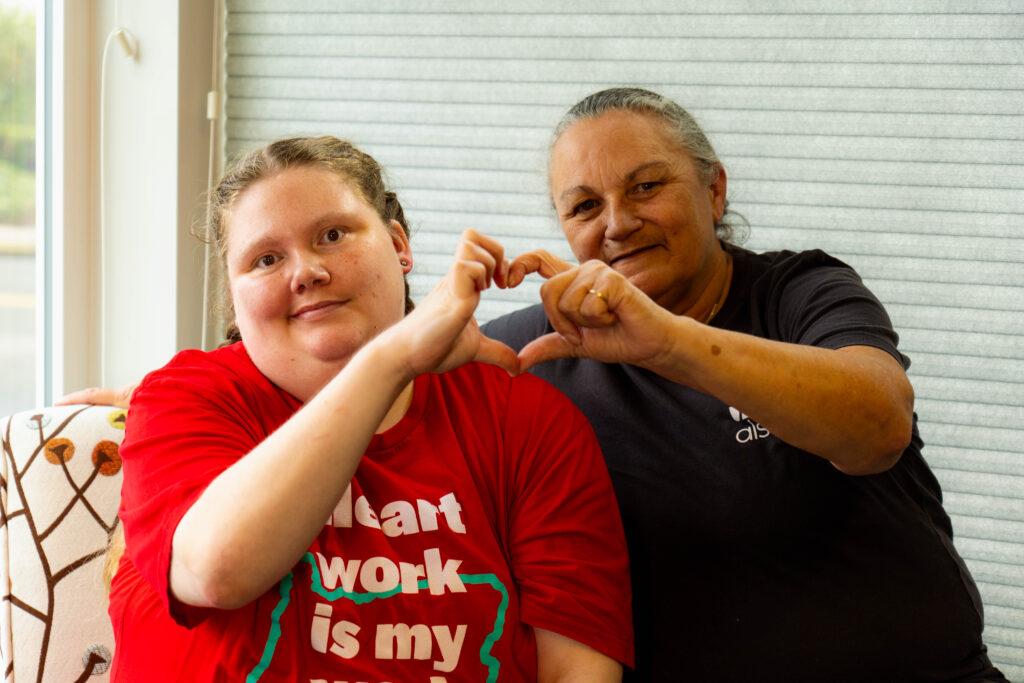Affordable housing for people with I/DD is in low supply. Learn what ALSO is doing to make a difference.
Affordable housing for people with I/DD is in low supply. Learn what ALSO is doing to make a difference.

Imagine that you’re living with a disability. Maybe you have cerebral palsy, or possibly you recently had a stroke that required you to use a cane or a walker. Well, you just happen to be a very conscientious and hard-working employee at a bank. You know your skill set. You know you’re good with numbers and figures. You’re trying to explain to a customer how their checking account may have become overdrawn, and why they need to pay an overdraft fee. The customer becomes increasingly frustrated and belligerent, which brings the manager over to see what’s going on.
The customer then blurts out, “How can you possibly hire people like this who don’t know what they’re doing? Are you really that desperate for employees?!”
Even though you were in the right, you go home from work that day angry, deflated, and frustrated. “What the heck do they mean, …’people like this?’ ” Too many days like this one, and you become anxious. Feelings of sadness and depression emerge. Understandably, your mental health suffers.
Scenarios like this one are all-too-common for people with intellectual and developmental disabilities (I/DD). As professionals who support individuals living with I/DD, we describe how mental health issues and other disabilities intersect to create a series of complex challenges that interfere with the everyday life needs that we all have regardless of ability: the need to be included in a community, feel productive, and take care of ourselves. We’ll also put forth a series of solutions to address the stigma of mental health and disability.

People with disabilities make up the largest minority population on Earth. Briar Harte knows all-too-well how discrimination and bias can affect daily life. After acquiring a disability at the age of 27, she was treated differently right off the bat. After running a global sourcing program, she suddenly experienced microaggressions and soft bigotry, with people making decisions for her and about her, like she was somehow less of a person. Briar was derided for not using makeup and wearing flat shoes, ‘looking so unprofessional.‘ She was stigmatized for having a disability.
Mental health can be described as a person’s social, emotional, and psychological well-being; it changes over time, fluctuating from positive and happy to anxious or sad. Other mental conditions include depression, bipolar disorder, schizophrenia, and substance use disorder.
According to the National Center for Disability, Equity, and Intersectionality, 17.4 million adults with disabilities experience frequent mental distress. So, what’s the connection between mental health problems and disability?
Research has indicated that approximately 30% to 40% of persons with intellectual disabilities also have mental health problems. They are at higher risk of developing conditions such as mood and anxiety disorders, psychoses, and schizophrenia. It isn’t like just having two separate disorders. But instead, each condition has an effect on the other, compounding them to create a complex labyrinth of daily challenges that interfere with school, work, and independent living.
Instances of stigmatization further amplify the problems. Bias, discrimination, and sometimes outright hostility cause people with combinations of disabilities and mental health diagnoses that severely interfere with emotional well-being.
Over the millennia, there have been several misconceptions and misplaced stereotypes related to mental health and disability. Admittedly, a few of them were positive. For example, in a region of Ghana, people with intellectual disabilities were believed to be reincarnated from a deity and therefore treated with kindness. Unfortunately, in most situations, those with developmental and mental health issues were treated very negatively.
Early Greeks felt that all sickness meant inferiority, and that those with disabilities should be ‘put away’ from others. Christians of the 16th century were certain that people with disabilities were possessed by evil spirits. Darwinism thought of the 19th century, although considered ‘scientific,’ was certainly of no help. Impairments and imperfections went against the idea of ‘survival of the fittest.’
An extensive 2016 study on stigma and mental health disorders revealed a dire finding: “There is no country, society or culture where people with mental illness have the same societal value as people without a mental illness.” A disappointing discovery, to be sure.
After experiencing repeated instances of bias, the developmental disability a person may have, compounded by mental health diagnoses and/or stressors, becomes internalized. Individuals eventually begin to believe that they are:
Eventually, low self-esteem and low self-confidence take over the person’s mindset. They begin to see their challenges as not something to overcome, but significant limitations that are insurmountable. They come to believe that it’s useless to even try to achieve their goals. This results in progressively decreased functioning and dependence on others.

So how do we address the negative effects of stigmatization? How can we turn the tides toward an open acknowledgment of the inherent value of full inclusion of people with all disabilities…including those with mental health issues?
For over 25 years, the entire staff at ALSO has been firmly committed to the vision of a future in which all persons with disabilities are fully included, participating members of society. We have been working for equitable access in schools, communities, and workplaces. Let’s talk further about the barriers to proper mental health care and disability services that have been created. But more importantly, let’s focus on solutions to these challenges.
There are a number of systemic issues that interfere with appropriate mental healthcare of people with I/DD and other disabilities.
We must remember that these systemic issues add up, not just for people with disabilities and mental health challenges, but also for the public as a whole. When these issues are left unchecked, people easily end up in the emergency department. The costs to the public for these crises that could have been prevented far outweigh what could have been done at the local healthcare center.
No matter who you are, you can be part of the solution in breaking the stigma and successfully addressing the mental health needs of people with disabilities.
As a service provider, remember that you are a member of a multidisciplinary team that is responsible for the care of your patients. You can advocate for a qualified case manager or service coordinator to synthesize and help to prioritize the needs of the people that you serve.
On any care team, it’s always helpful for one health care provider to take the lead. Primary care providers may fulfill this role as they are trained in addressing mental as well as physical health problems. In addition, they would be responsible for writing referrals if the individual with the disability needed counseling services or additional behavioral support.
Excellent support of individuals with disabilities must include facilitation of self-advocacy skills. We need to help them to understand their disability rights by providing resources, education, and, of course, encouragement. This is very empowering and contributes to well-being.
Finally, we are reminded to be a good listening ear. If someone wants to talk, just be available to listen without making any judgments or assuming what they might need. We all know how much better we feel when we can just vent and let it all out!

Organizations like ALSO have an important role to play in breaking the stigma of mental health and disability. We are strong allies in all advocacy and education efforts related to mental health and well-being needs. We have witnessed how, when our support services are paired with high-quality mental health care, those we support benefit in their intellectual functioning, self-esteem, and even physical health. It’s all connected!
Our community-based services support mental health practitioners and their goals by following up and providing opportunities for the people we support in practicing adaptive behaviors that improve independence, self-worth, and daily function in everyday life.
Together, we aim to break the stigma. We promise.

Sign up for our newsletter to get our latest news, content, and job opportunities.
Help us ensure that everyone has the same opportunities in their home, workplace and community. Let’s make dreams!
